Managed Services

Monitoring
IT monitoring refers to the process of observing and analysing the performance of an organization’s information technology (IT) systems and infrastructure.
This includes monitoring the health and availability of servers, networks, applications, databases, and other components of the IT environment to identify issues and potential problems before they become critical. IT monitoring typically involves collecting data from various sources, such as logs, metrics, and events, and using specialized tools and techniques to analyze this data to gain insights into the performance and behaviour of IT systems.
The goal of IT monitoring is to ensure that IT services are running smoothly and meet the required performance, availability, and security levels.

Data Protection
Data protection refers to the set of measures and processes implemented to safeguard sensitive or confidential data from unauthorized access, use, modification, destruction, or disclosure.
This includes protecting data privacy, integrity, and availability throughout its lifecycle, from creation to disposal. Data protection involves identifying and classifying data based on its sensitivity level, implementing access controls, encryption, and other security measures to prevent unauthorized access, and monitoring data usage to detect and respond to potential security incidents. Data protection is essential for organizations to comply with legal and regulatory requirements and to maintain the trust of their customers and stakeholders.
Failure to adequately protect data can result in significant financial, legal, and reputational damage to an organization.

Hosted Services
Hosted services refer to IT services that are provided and managed by a third-party vendor, who hosts and maintains the necessary infrastructure and software in their own data centre’s or cloud environments.
Hosted services can include a wide range of IT solutions, such as email hosting, cloud storage, web hosting, software-as-a-service (SaaS), and infrastructure-as-a-service (IaaS). Hosted services are often accessed over the internet and typically operate on a subscription or pay-per-use basis. By using hosted services, organizations can avoid the capital expenditure and ongoing maintenance costs associated with building and managing their own IT infrastructure. Hosted services also provide scalability, flexibility, and accessibility, enabling organizations to quickly and easily add or remove resources as needed to meet changing business demands.
However, organizations must carefully evaluate the security, performance, and reliability of hosted services and ensure that they comply with legal and regulatory requirements.

Business Telecoms
Business telecom refers to the use of telecommunications technology and services to support the communication needs of businesses. This includes voice, data, and video communication services such as phone systems, email, messaging, video conferencing, and collaboration tools.
Business telecom services can be delivered using a variety of technologies, including traditional landline phone systems, mobile networks, internet-based communication services, and satellite-based services. Business telecom services are essential for supporting internal communication within an organization as well as communication with external stakeholders such as customers, suppliers, and partners. With the increasing use of remote work and global business operations, reliable and efficient business telecom services are critical for maintaining productivity and competitiveness.
Organizations can benefit from the use of advanced telecom technologies such as unified communications and cloud-based telecom services, which offer enhanced features, flexibility, and cost savings.
